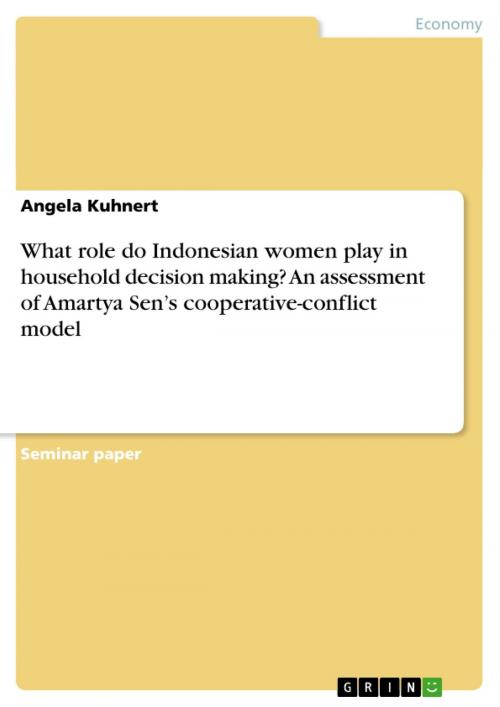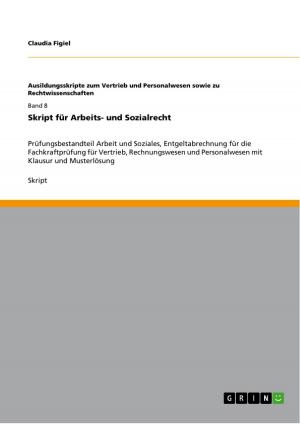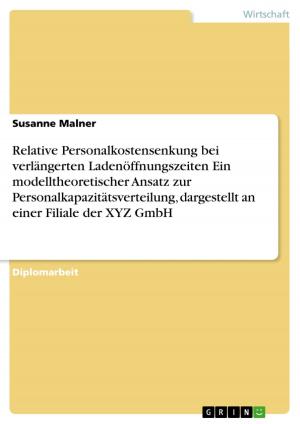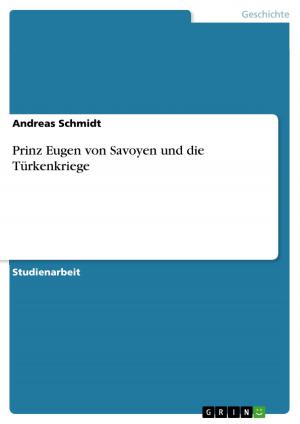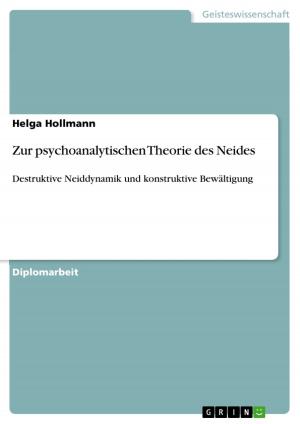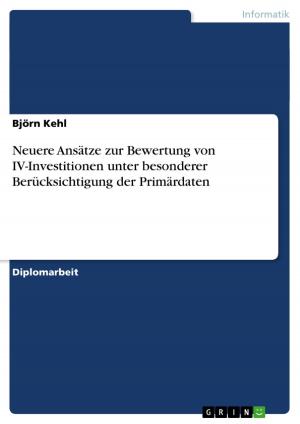What role do Indonesian women play in household decision making? An assessment of Amartya Sen's cooperative-conflict model
Business & Finance, Economics, Urban & Regional| Author: | Angela Kuhnert | ISBN: | 9783656747444 |
| Publisher: | GRIN Verlag | Publication: | September 23, 2014 |
| Imprint: | GRIN Verlag | Language: | English |
| Author: | Angela Kuhnert |
| ISBN: | 9783656747444 |
| Publisher: | GRIN Verlag |
| Publication: | September 23, 2014 |
| Imprint: | GRIN Verlag |
| Language: | English |
Seminar paper from the year 2012 in the subject Economics - Case Scenarios, grade: 85, The Open University, language: English, abstract: Indonesia offers an interesting case in order to study the bargaining power of women within households. The country of Indonesia was created due to the Dutch colonial rule and consists of over 13,000 islands offering a wide range of ethnic variety with the largest ethnic groups being Javanese (41%), Sundanese (15%) and Maudareses (4%); still leaving another 41% belonging to other ethnic groups (The PRS Group, 2011). Furthermore while Indonesia is the country with the largest Muslim population in the world, they only make up 86% of the total population; other larger religious groups are Catholics, Protestants, Hindus and Buddhists (The PRS Group, 2011). This variety will offer different possibilities in order to investigate the role Indonesian women play in household decision making. In this context Amartya Sen's cooperative conflict model will be assessed. Households produce Z-goods, which are household resources, in order to gain utility leading to economies of scale which means that larger households can achieve the same level of Z-goods as a smaller household while needing less time and money (Himmelweit & Santos, 2008). In order to produce Z-goods most efficiently members of the household specialise, whereas the husband usually specialises in paid work while the wife specialises in unpaid work; however the specialisation becomes critical in case of an end of the household due to death, divorce or separation and suddenly the household is lacking either the person taking care of the household or the one earning money (Himmelweit & Santos, 2008). Yet the specialisation may also not be equally distributed between different members of the household and the welfare of all members may depend on one or more member's caring preferences (Himmelweit & Santos, 2008). Therefore this report will first explore the influence of caring preferences among household members. Afterwards two unitary models, Samuelson's approach considering a household as a black-box and Becker's rotten kid approach will be described. These models do not consider household members who do not have equal bargaining power and therefore Sen's cooperative conflict model will be investigated. In order to assess his model the book 'Schleier Sarong Minirock' by Berninghausen, Kerstan and Soeprapto-Jansen (2009) will be used in order to getting an idea of how women live in Java, Bali, Lombok and Aceh and how norms of society influence their life.
Seminar paper from the year 2012 in the subject Economics - Case Scenarios, grade: 85, The Open University, language: English, abstract: Indonesia offers an interesting case in order to study the bargaining power of women within households. The country of Indonesia was created due to the Dutch colonial rule and consists of over 13,000 islands offering a wide range of ethnic variety with the largest ethnic groups being Javanese (41%), Sundanese (15%) and Maudareses (4%); still leaving another 41% belonging to other ethnic groups (The PRS Group, 2011). Furthermore while Indonesia is the country with the largest Muslim population in the world, they only make up 86% of the total population; other larger religious groups are Catholics, Protestants, Hindus and Buddhists (The PRS Group, 2011). This variety will offer different possibilities in order to investigate the role Indonesian women play in household decision making. In this context Amartya Sen's cooperative conflict model will be assessed. Households produce Z-goods, which are household resources, in order to gain utility leading to economies of scale which means that larger households can achieve the same level of Z-goods as a smaller household while needing less time and money (Himmelweit & Santos, 2008). In order to produce Z-goods most efficiently members of the household specialise, whereas the husband usually specialises in paid work while the wife specialises in unpaid work; however the specialisation becomes critical in case of an end of the household due to death, divorce or separation and suddenly the household is lacking either the person taking care of the household or the one earning money (Himmelweit & Santos, 2008). Yet the specialisation may also not be equally distributed between different members of the household and the welfare of all members may depend on one or more member's caring preferences (Himmelweit & Santos, 2008). Therefore this report will first explore the influence of caring preferences among household members. Afterwards two unitary models, Samuelson's approach considering a household as a black-box and Becker's rotten kid approach will be described. These models do not consider household members who do not have equal bargaining power and therefore Sen's cooperative conflict model will be investigated. In order to assess his model the book 'Schleier Sarong Minirock' by Berninghausen, Kerstan and Soeprapto-Jansen (2009) will be used in order to getting an idea of how women live in Java, Bali, Lombok and Aceh and how norms of society influence their life.
